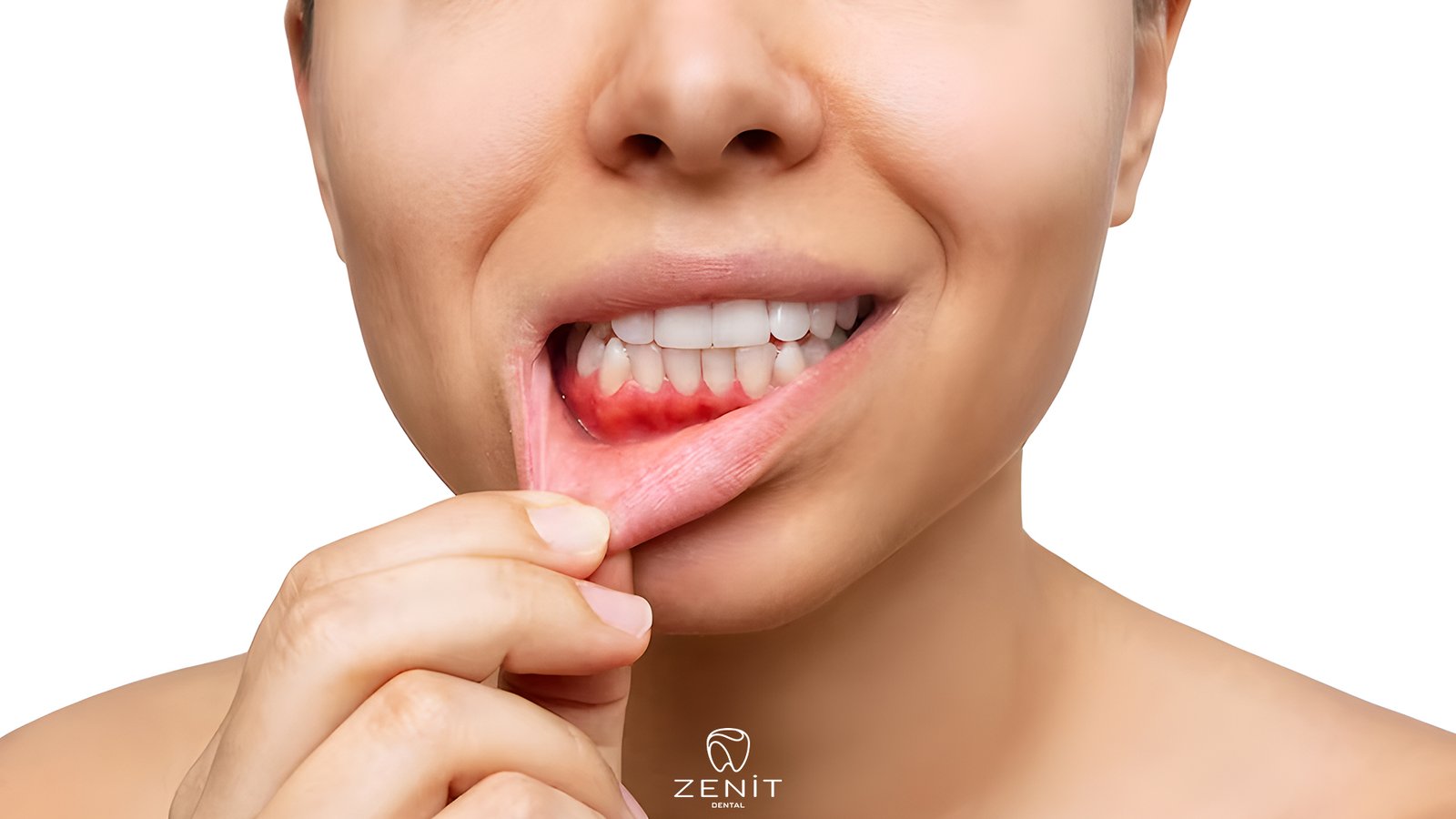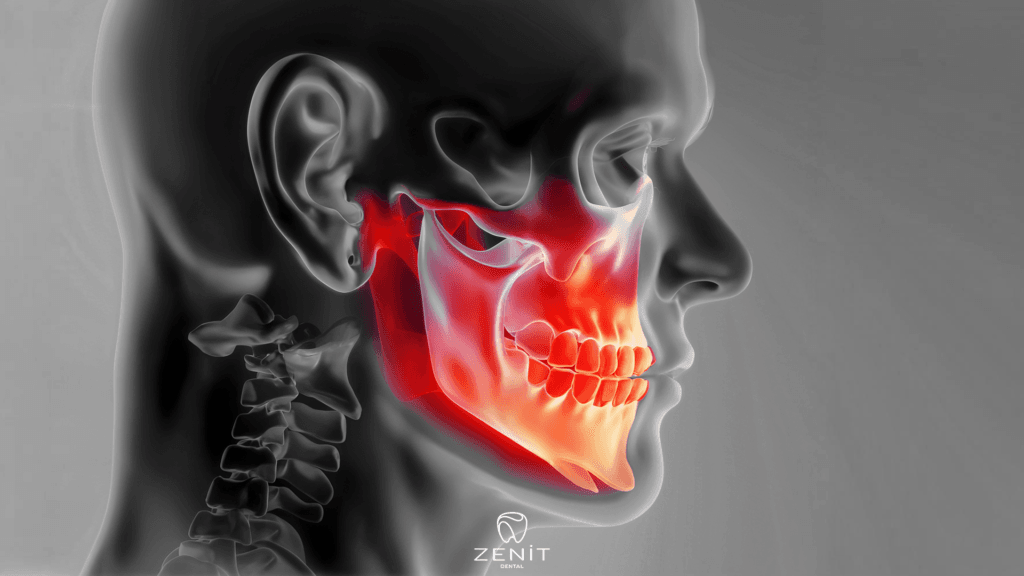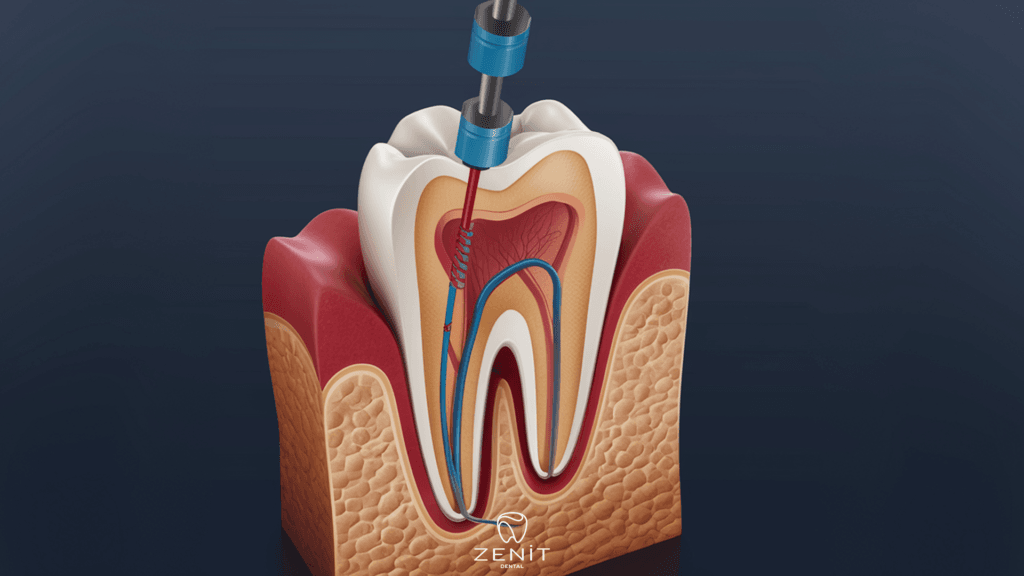Gum Bleeding
Oral health is an important part of our overall well-being, and issues like gum bleeding can lead to serious complications. In this article, we will delve into the causes, treatment methods, and prevention strategies of gum bleeding. We will also debunk commonly misunderstood information on this topic. Be sure to browse our blogs to learn more about the importance of a healthy mouth and gum health.
Causes of Gum Bleeding
There are many potential causes of gum bleeding, including:
- Plaque and Tartar Buildup: Bacterial plaque accumulating on the surface of teeth can irritate the gums and lead to bleeding. It can also result in gum inflammation.
- Incorrect Toothbrushing Technique: Brushing your teeth incorrectly can injure the gums and cause bleeding. Applying too much pressure or using the toothbrush at the wrong angle can harm the gums.
- Gum Infections: Gum infections like periodontitis can lead to gum bleeding. These infections weaken the gums, making them prone to bleeding.
- Dietary Habits: An imbalanced diet can leave the body lacking essential nutrients, which can negatively impact gum health.
- Smoking and Alcohol Consumption: Smoking and excessive alcohol consumption can harm oral health and contribute to gum bleeding.
- Hormonal Changes: Factors such as pregnancy, menopause, or hormone therapy can lead to hormonal changes and increase the risk of gum bleeding.

Treatment of Gum Bleeding
You can follow the steps below to treat gum bleeding and regain oral health:
- Dental Checkup: If you are experiencing gum bleeding, it’s essential to consult a dentist. The dentist will evaluate the condition and create an appropriate treatment plan.
- Professional Dental Cleaning: Dentists can alleviate gum bleeding by removing plaque and tartar. This procedure also helps reduce gum inflammation.
- Improved Oral Hygiene: Practices such as regular tooth brushing, flossing, and using mouthwash are critical for maintaining gum health.
- Dietary and Nutrition Adjustments: Getting an adequate intake of nutrients like vitamin C and calcium can support gum health. Limiting the consumption of sugary and acidic foods is also essential.
- Gum Surgery: In advanced cases of gum problems, gum surgery may be necessary to correct and restore gum health.
Preventive Measures for Gum Bleeding

You can follow these strategies to prevent gum bleeding:
- Regular Dental Care: Brushing your teeth at least twice a day is the cornerstone of maintaining gum health. It is also important to learn the correct brushing technique and use dental floss.
- Regular Dental Checkups: Visit your dentist regularly. Early diagnosis helps address gum issues quickly.
- Avoid Smoking and Excessive Alcohol: Smoking and excessive alcohol consumption negatively affect oral health. Avoid these harmful habits.
- Healthy Eating: A balanced and healthy diet supports gum health. Ensure you consume plenty of fresh fruits and vegetables, dairy products, and fiber-rich foods.
Don’t Neglect Gum Bleeding
- Preventing Dental Health Problems: Gum bleeding can be an early sign of more serious dental issues. When detected early, gum diseases are easier to treat.
- Protecting Yourself and Your Teeth: Gum bleeding can lead to gum infections that may result in tooth loss. Maintaining gum health is crucial for long-term dental well-being.
- Preventing Bad Breath: Gum diseases can cause bad breath. Treating gum bleeding can help prevent bad breath.
- Crucial for Overall Health: Gum health is directly linked to overall health. Research indicates that gum disease may be associated with heart disease, diabetes, and other chronic health issues.
For these reasons, it is important to seek the advice of a dentist when experiencing gum bleeding. A dentist can assess your gum health, make a diagnosis, and recommend appropriate treatment. Treatment will help address the underlying issue causing gum bleeding and aid in maintaining your oral health. Additionally, regular dental visits are crucial for preserving your dental health and early detection of gum issues. Remember, gum health plays a significant role in achieving a healthy smile, and gum bleeding is an indicator of this health.
Conclusion
“Gum bleeding is a problem that can significantly impact your oral health. However, with regular dental care, dental checkups, and healthy lifestyle habits, you can prevent and treat this issue. Your oral health is a crucial part of your overall well-being and should not be neglected. If you are experiencing gum bleeding, it is important to seek professional advice from a dentist. Remember that a healthy smile can boost your confidence and enhance your overall quality of life.






